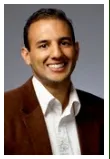Earth Day Special : Parag Gupta talks about Waste Ventures, a 2010 Echoing Green Finalist

YourStory spoke to Parag Gupta, founder Waste Ventures .Parag was formerly Associate Director at the Schwab Foundation for Social Entrepreneurship and Fellow at the World Economic Forum. He worked on social investment and on introducing CEOs to opportunities at the Base of Pyramid. Prior, he founded IDEAS while at the Harvard Kennedy School, was a consultant at the Bridgespan Group, and advisor to many international social entrepreneurs.1) Tell us about Waste Ventures

Most of the garbage in Indian cities (and throughout the developing world) is collected by waste pickers who scavenge through the garbage for plastics and glass to sell. This marginalized community makes less than a dollar a day and often suffers many illnesses that decrease life expectancy. Waste Ventures provides waste pickers with a more lucrative method of processing waste that includes a household collection fee-for-service, sorting the garbage into recyclables, composting the organic waste into bio-fertilizer, and earning carbon credits for preventing green house gasses. Waste Ventures then helps the waste pickers, which it forms into corporations, aggregate investment capital and sell the bio-fertilizer and green house gasses in larger markets. By doing so, Waste Ventures increases earnings 4x for waste pickers, provides company ownership, reduces garbage by 80% through recycling/ composting, tackles climate change, and returns a profit to investors.2) Who are people behind it

I created Waste Ventures after realizing the sector’s potential working as Associate Director at the Schwab Foundation for Social Entrepreneurship, an affiliate of the World Economic Forum in Switzerland. Prior, I was a consultant to many international social entrepreneurs and foundations across the world and even for Fortune 500 companies. I studied catalytic philanthropy/ social investing at the Harvard Kennedy School where I did my Masters.Our board members include Geoff Davis, former CEO of Unitus, a global enterprise that accelerates the microfinance sector; Pamela Hartigan, Director of the Skoll Centre at the Said Business School in Oxford; and Harish Hande, founder of Selco, which provides renewable energy services to the rural poor in India. Our advisors include Vikram Akula, the founder of SKS Microfinance and Waste Concern, the first venture to earn UN carbon credits from a compost plant.
We are now aggressively hiring!
3) Share with us the objectives and vision of Waste Ventures
Our vision is to create a commercial market to invest in waste picker corporations that environmentally process waste. We do so by proving commercial viability and also smoothing out government policy to encourage recycling and composting. A commercial market will then self-perpetuate, build more waste picker corporations, and uplift more waste pickers while in turn reducing greenhouse gasses and waste. Simultaneously, we will be creating a market for bio-fertilizer which will reduce dependency on chemical fertilizer by 25% and increase productivity by 30%. In this vision, we also achieve a secondary benefit – which is to move the solid waste management industry towards a commercial market which in turn decreases the amount of money spent by governments (estimated to be around 30 – 50% of a municipal budget) and in turn reduces corruption leading to a more efficient system. We are not making any friends but that was never our intent!
4) Share your thoughts on green entrepreneurship in India : challenges, need , opportunities
There are two sets of challenges/ needs:
On the government side, regulation and policy must be enacted to encourage entrepreneurship and the commercial sector to enter. At the very least, policies that hinder its development should be eliminated. For example, in many municipalities, we have found that the garbage contracts actually prohibit the recycling or composting of waste and mandate the waste be placed in an open dumpsite. At the national level, the government will encourage significant entry of players in the market by streamlining the attainment of carbon credits for composting garbage.
On the commercial side, a lot of capital is pumped into green products. I don’t know if it is the hope of finding a ‘magic bullet’ technology that will help in sustainable energy or mitigating climate change. However, in developing economies – particularly with large rural and poor populations and inadequate infrastructure – much of the issue is distribution and service. Traditional paradigms of product and service delivery do not work and while Indian VCs are growing savvy about barefoot products, I would love to see more investment in doorstep services for lower income markets. The firm that can tap into both will tap into vast green markets in India.
We see a tremendous opportunity in processing garbage – particularly in lower income areas as we expect the compounded annual growth rate of garbage in India to exceed 10%.
5) What are the future plans for Waste Ventures
We are currently working in India but have plans to expand to other developing countries in the near future. A GTZ report estimates that approximately 2% of the world’s poor engage in waste picking activity pointing to a large global market for our intervention. We are starting two projects in India and are actively seeking waste picker organizations (non-profit or for-profit) that have aggregated waste pickers. We are also hiring individuals in India.
We were also fortunate (and humbled) to be selected as a 2010 Echoing Green Finalist. The Echoing Green Foundation selected 25 ventures out of more than 1000 to share their ideas in New York. As we grow and create the ‘Base of Pyramid’ solid waste management market, feel free to follow us on Social Edge at www.socialedge.org/blogs/talking-trash!






